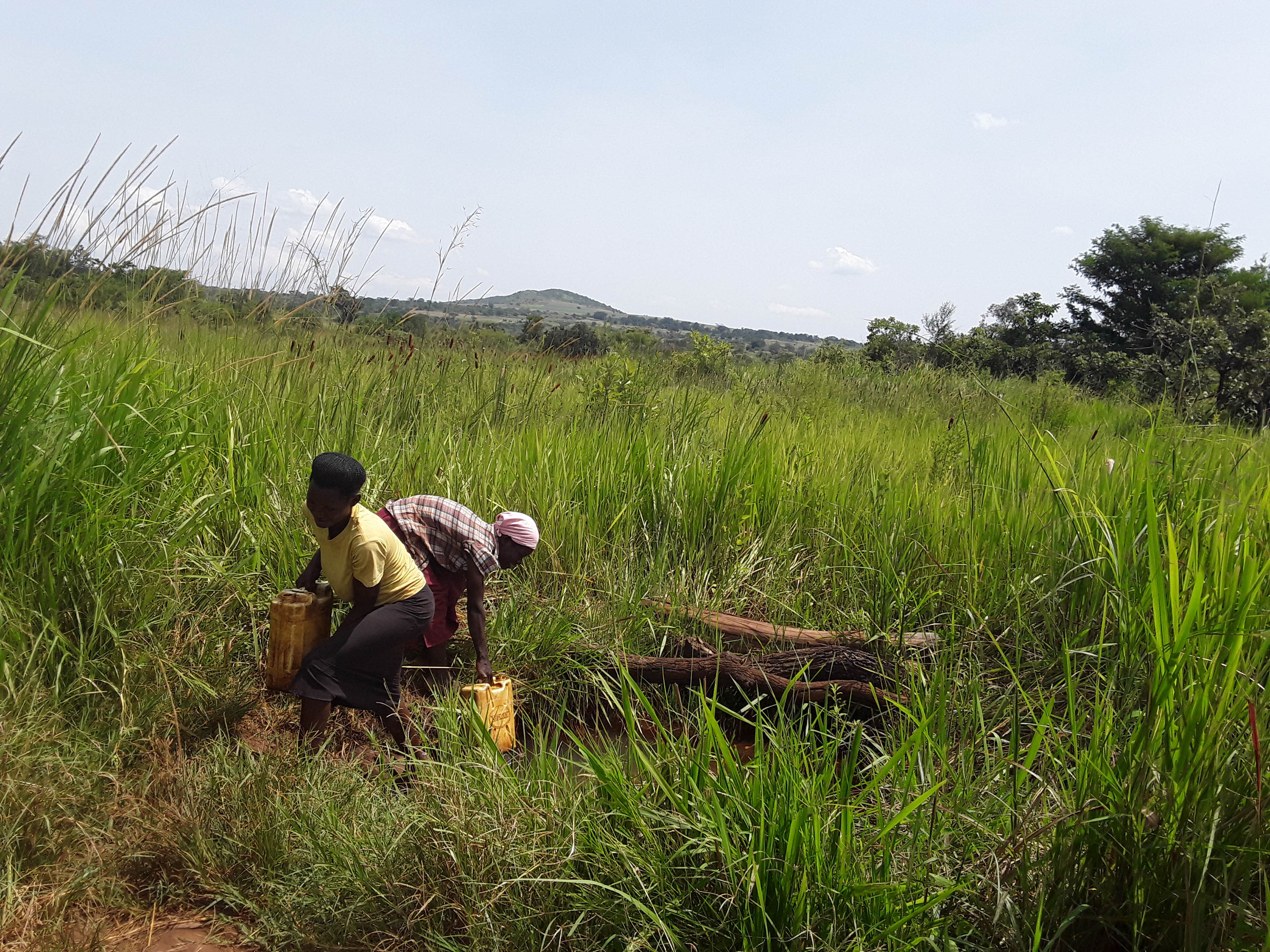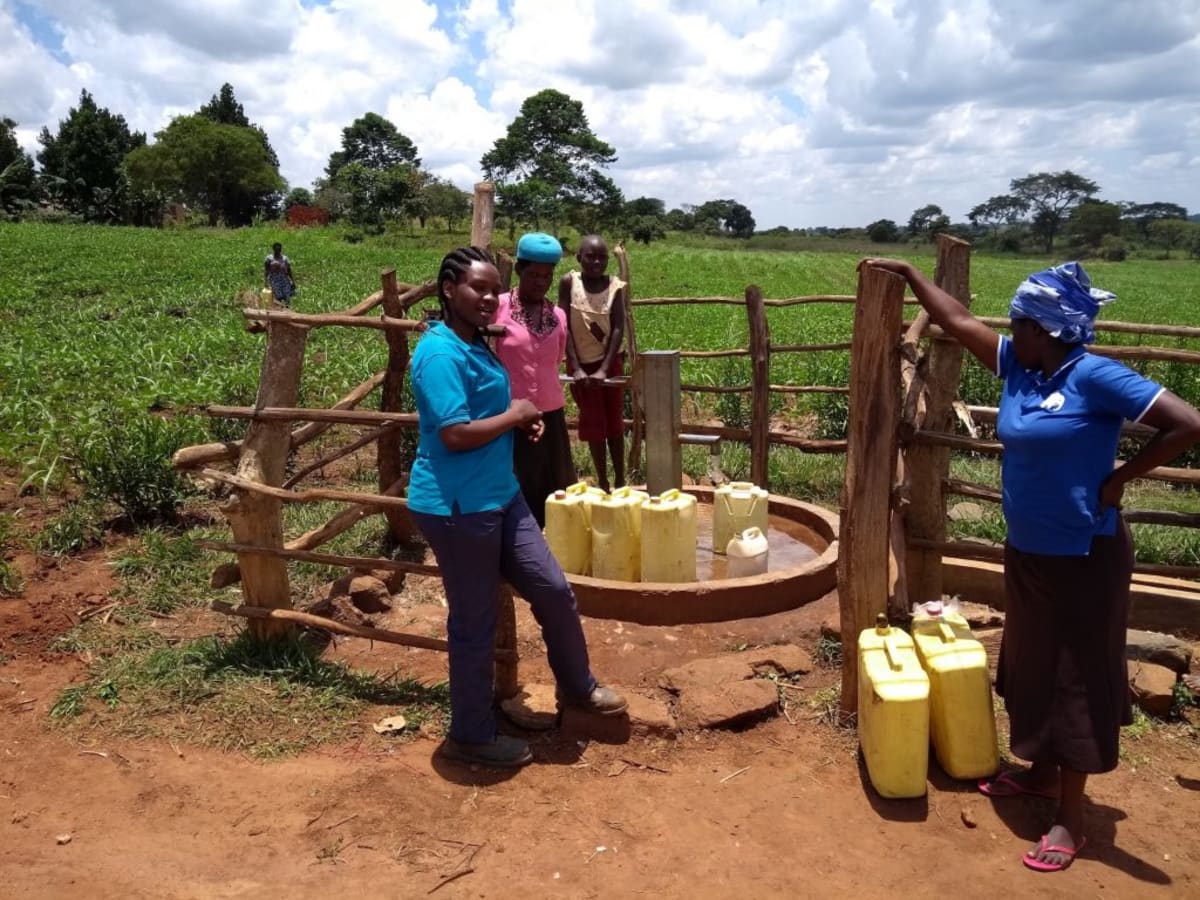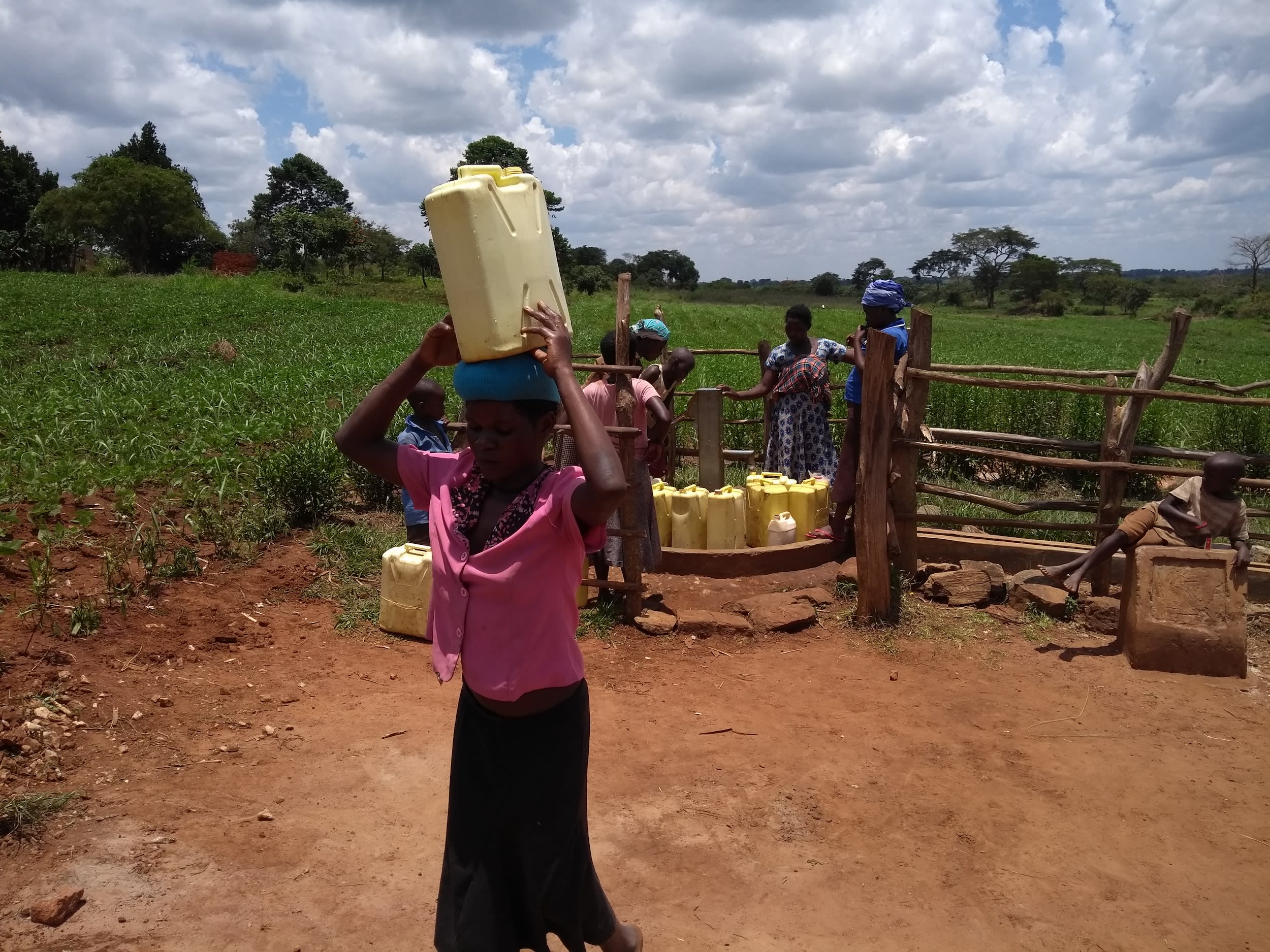The community members wake up at 6am to go till their farmland. Major crops grown here include maize, beans, potatoes and sugarcane. The sugarcane is sold to the Kinyara Tea Factory.
Farm work goes on up to 1pm when they go to the trading center to sell or trade their harvest or wares.
The community members are united, coming together for the community's overall success.
Water
The main source of water in Byebega is found in a swampy, overgrown area. The community members are filled with fear as they wander to through the reeds to this unprotected spring. They told us they are often attacked by water snakes.
This water is entirely unprotected from contaminants. Rotting plants float on the surface, animals come and go as they please, and rainwater washes dirt and waste into the water. The water not only is murky, but it smells too.
Plastic containers are dunked directly in the water until full. Not only do people suffer from snake bites, but they suffer from the dirty water itself. Drinking this water results in typhoid. The water is also used for all other needs, including cooking, cleaning, and watering animals.
Sanitation
Open defecation is a common practice in this community, with many people resorting to the privacy of bushes to relive themselves. Less than half of households have a pit latrine. Most of the ones we observed are in poor condition and endanger the user – they are close to collapsing. Many others are lacking rooftops to protect it from the elements. There were some that had no superstructure at all!
We were surprised to find a hand-washing station at one household in the village; it’s a rare site in rural Uganda (included in the pictures).
Here’s what we’re going to do about it:
Training
Training’s main objectives are the use of latrines and observing proper hygiene practices, since these goals are inherently connected to the provision of clean water. Open defecation, water storage in unclean containers and the absence of hand-washing are all possible contaminants of a household water supply. Each participating village must achieve Open Defecation Free status (defined by one latrine per household), prior to the pump installation for a shallow hand-dug well.
This social program includes the assignment of one Community Development Officer (CDO) to each village. The CDO encourages each household to build an ideal homestead that includes: a latrine, hand-washing facility, a separate structure for animals, rubbish pit and drying rack for dishes.
We also implement the Community Led Total Sanitation (CLTS) approach with each of our village partners. This aims to improve the sanitation and hygiene practices and behaviors of a village. During these sessions, village leaders naturally emerge and push the community to realize that current practices of individual households – particularly the practice of open defecation– are not only unhealthy, but affect the entire village. CLTS facilitates a process in which community members realize the negative consequences of their current water, sanitation and hygiene behaviors and are inspired to take action. Group interactions are frequent motivators for individual households to: build latrines, use the latrines and demand that other households do the same.
Hand-Dug Well
The community will participate in excavating and constructing the water source. In the meantime, the aim is that all households own an improved latrine. Many households do not use a latrine but use the bush. Due to open defecation, feces are spread all over the village. This leads to waterborne diseases and contamination of groundwater and surface water. Our aim is that the community is able to live a healthy life free of preventable diseases. We endeavor that at the end of our presence in the community, people will have both access to sustainable, clean water and access to sanitation. We have now organized families to form digging groups for latrine construction, and empowered them with tools to use.
Actual well construction will take four to six weeks if there are no challenges. The well will be lined with bricks and sealing clay, and finished with a Consallen pump.
This project is a part of our shared program with The Water Trust. Our team is pleased to provide the reports for this project (formatted and edited for readability) thanks to the hard work of our friends in Uganda.

 Protected Dug Well
Protected Dug Well
 Rehabilitation Project
Rehabilitation Project


























